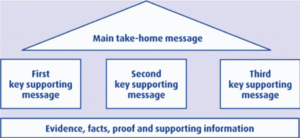“It takes 20 years to build a reputation and five minutes to ruin it. If you think about that, you’ll do things differently”– Warren Buffett The old adage of “fail to prepare, prepare to fail” could not be more salient when it comes to a crisis coming at you full speed and, as is often the case, when you least expect it.
Hong Kong Inc., known for its resilience and indomitable spirit, is once again facing a crisis. Not one but a few, and all at once. Almost 80% of all visitors in the past five years came from Mainland China. After eight months of protests, that tap of tourism spend was reduced to a trickle. Hopes to be saved by the spending spree of the Chinese New Year were crushed by the coronavirus. The immediate focus is on pushing through the quicksand of the current lockdown, in the knowledge that the next stage will be to survive the heavy grip of recession. It takes a lot to knock Hong Kong to the canvas but the pain is palpable. Communities will rally but this recovery will be long. Measures to support business must be introduced, and now. For some, later may be too little, too late.
Churchill’s Fighting Spirit Winston Churchill was known for his fighting rhetoric and he repeated Kipling over and over. As he walked the underground corridors of the war rooms, chewed cigar in mouth and cane at the ready, he was also said to have bellowed, “If you’re going through hell, keep going!” Churchill epitomised every inch of that bulldog spirit. He would not be rattled now and, with a solid crisis strategy in place, nor should you be.
Crucial Crisis Strategies
Businesses need TWO crisis strategies: one for the long-term impact once the dust settles; and the here-and-now, with a focus on reassuring nervous staff and customers, and figuring out how to cover overheads, namely the high rent. A wall of uncertainty faces each decision.
How is your business positioned for the economic impact? How will you manage any adjustments to staffing? Where will you find the money to pay the landlord? How will you cope with the barrage of enquiries from a hungry media? It is crucial that you are crystal clear on the corporate messaging and have holding statements prepared for all eventualities. It goes without saying that your immediate priority should be the health and safety of your team, customers and their families.
‘Selective’ Media Strategy
When matters are beyond your control, it helps that your stakeholders know you are steadying the ship and have a firm hand on the tiller. To achieve that goal, one strategy is to telegraph your message through selective media contacts. Selective because it’s vital you engage journalists you know and, within reason, trust. (Investing time and effort in cultivating strong media relations is a win-win situation). If you are approached by a top publication, news wire or TV station, and you engage purely because the name appeals, be aware that these journalists are the best in the business. They are not interested – at all – in doing a PR puff piece for you. They are chasing news that fits their story, not yours.
This is where it is advantageous to have a former journalist advising on communications (plugging myself, I know, but it’s my piece so I’d be foolish not to). The most successful coaches are often those who have competed to a high level, and can empathize with the pressures, work rate, wins and losses. It is the same with managing journalists.
A newsroom can be a brutal place, whether it’s the alarm screaming “WAKE UP!!” at 3am, the frenetic scramble for exclusives, knowing you’re as good as your last story or feeling the wrath of a frustrated editor. There is no substitution for first-hand experience and hard graft, earned at the heat of the coalface. Period. An effective communications advisor needs to properly understand the journalist’s intentions, while, at the same time, prioritize the interests of you, the client. It’s a delicate tight rope to walk but a necessary one if you are to maximise the outcome.
Keep an Open Dialogue
One of my Hong Kong-based clients understands this and has a rueful appreciation for the fourth estate. She recognizes that media engagement can only work when a strategy has been carefully thought through, a hit list of key media is at the ready and each interview is handled with tact and integrity. In managing this current crisis, her top priority has been to establish as open a dialogue as possible with the key stakeholders, namely employees, customers, investors – and the media. She understands that, by controlling the story as best she can, the balanced coverage can help serve as a protective screen while the team steadies the ship. On the flip side, it can also be advisable to stay below the media radar, particularly during a financial transaction or managing a sensitive personal matter.
A quick sidebar – it always helps to know the rules of ‘off the record’ and ‘on background.’ (For a more detailed breakdown, see my piece, “Journalist Jungle”).
Each crisis is different to the next. There is no one-stop-shop of solutions and no perfect playbook. With that as a caveat, I hope these suggestions help.
RULE 1
PEOPLE FIRST. Be responsible, caring and prioritize the safety of your employees and customers. Make sure that any action you take to protect the organisation puts their safety first. This is the most effective means to protect your reputation. In a crisis, it is important you use a firm yet understanding tone.
RULES 2 – 8
The Confident Spokesperson
Who’s your spokesperson? Big or small, every business needs a voice of reason to call on before a crisis escalates into a public flogging. Ideally you had the foresight to invest in crisis planning. More often than not though, it is the opposite. Most think a crisis will never come so they put it off, only to scramble into action when the axe falls. Don’t wait! If you have the resources, hire a communications specialist. Fail to prepare….
Hiring a Specialist

Communicate!
Communicate regularly with your stakeholders, be transparent and be consistent with your messaging. If not yourself, appoint a trusted advisor to be the source of authoritative news so any misinformation is controlled.
Control Tower
Stay ahead of any internal issue before it becomes public. Don’t just focus on the reaction, be proactive. Anticipate consequences and plan potential scenarios. Gather information and respond if necessary. Be seen to be in control. Steven Spielberg said the worst thing you can do on a movie set is question your own direction, “what do you think?” “does this work?” People see it as weak and you lose their confidence. Believe in yourself.
Media 101
Know your messaging and, if you have not done so already, write holding statements to cover all eventualities. Develop and map a media strategy. Know your chosen journalists, their specific beats and recent story angles. Target the journalist with a pitch that sticks. When in the interview, record it. Should you feel uneasy about one of your comments, ask him or her to read it back to you. Clarify the context, leave nothing to doubt. Follow up by offering facts or figures that may help support the story and your messaging.
One for All, All for One!
In a crisis, it’s imperative you work out any internal issues as a team. In the heat of a crisis, there can be many moving parts, panic at home, unsaid words and confused emails. Keep an open dialogue to prevent, for example, a disgruntled and highly stressed employee running to the media or sending a rogue tweet. In a crisis, treat all issues with urgency.
Policing Platforms
Police all digital media. It takes only one irresponsible tweet and your issue goes viral to millions. Your team needs to be on side. Monitor the platforms and know your audience.
Authentic You
Be authentic! When talking to any stakeholder, particularly the media, do not fudge. People can quickly smell a rat. Tackle problems with integrity and, if you’re not sure, say you need to check and will call back as soon as you can. Ask for their deadline.
Message House.
The message house is a recommended, and effective, template used by communications professionals. Beginning with the primary umbrella message, the process is to then introduce three core messages and, at the foundation, a collection of facts, figures and a few anecdotes.
In the midst of a crisis, the big picture can often be lost in the haze of fear and confusion. Don’t let it be. As a General marching into battle, keep your eye on the prize.
Think Churchill.





